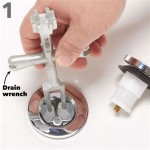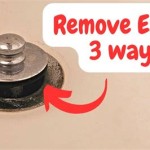What is a Stone Resin Bathtub Used For Showers: An In-Depth Look
Stone resin bathtubs have emerged as a popular choice in modern bathroom design, offering a compelling combination of aesthetics, durability, and functionality. These bathtubs, crafted from a composite material that blends natural stone powder with synthetic resins, are frequently utilized not only for traditional bathing but also as a platform for showering. Understanding the properties and design considerations that make stone resin bathtubs suitable for showers is crucial for homeowners and designers seeking a sophisticated and practical bathroom solution.
The inherent characteristics of stone resin, such as its non-porous nature and thermal properties, contribute significantly to its suitability for shower applications. Unlike some materials, stone resin does not readily absorb water, preventing the growth of mold and mildew. This is a critical factor in maintaining hygiene and minimizing maintenance in a wet environment like a shower. Furthermore, the heat-retentive qualities of stone resin enhance the showering experience by providing a more comfortable and consistent water temperature.
The design flexibility afforded by stone resin allows for the creation of bathtubs that seamlessly integrate into shower setups. Manufacturers can mold the material into various shapes and sizes, enabling the production of bathtubs with features that are specifically tailored for showering, such as integrated shower screens or non-slip surfaces. This versatility opens up a wide range of possibilities for bathroom layouts and styles, making stone resin bathtubs a favored option for both new constructions and renovations.
The Material Composition and Properties of Stone Resin
The defining aspect of a stone resin bathtub lies in its material composition. This composite is typically made up of a high percentage of crushed natural stone, such as marble or granite, which is then combined with a synthetic resin, often acrylic or polyester. The precise ratio of stone to resin can vary depending on the manufacturer and the desired characteristics of the final product. Higher stone content generally results in a more durable and stone-like appearance, while a higher resin content can improve the tub's resistance to staining and impact.
The non-porous nature of stone resin is one of its most significant advantages, particularly when used in a shower environment. Porous materials, like some types of natural stone, can absorb water and harbor bacteria, leading to staining, odors, and potential health concerns. Stone resin, by contrast, is virtually impermeable, preventing water from penetrating its surface. This reduces the risk of mold and mildew growth, simplifies cleaning, and contributes to the overall longevity of the bathtub.
Another beneficial property of stone resin is its excellent heat retention. The material absorbs heat relatively quickly and releases it slowly, helping to maintain a consistent water temperature for a longer period. This is particularly advantageous for showers, as it allows the user to enjoy a more prolonged and comfortable experience without the need to constantly adjust the water temperature. The thermal mass of the stone resin also contributes to a warmer surface feel, which is often preferred over colder materials like acrylic or cast iron.
Furthermore, stone resin exhibits a degree of impact resistance, although this can vary depending on the specific composition and construction of the tub. While not as indestructible as some metals, stone resin is generally resistant to chipping and cracking under normal use. Minor scratches can often be buffed out, further extending the lifespan of the bathtub. However, it's important to avoid dropping heavy objects onto the surface, as this could potentially cause damage.
Design Considerations for Stone Resin Bathtubs in Shower Applications
When incorporating a stone resin bathtub into a shower setup, several design considerations must be taken into account to ensure both functionality and aesthetics. The size and shape of the bathtub should be carefully chosen to fit the available space and to accommodate the user's showering needs. The placement of the showerhead and controls is also crucial for optimizing the showering experience.
One common design approach is to install a shower screen or enclosure around a portion of the bathtub to prevent water from splashing onto the surrounding floor. Fixed glass panels, sliding glass doors, or even shower curtains can be used to achieve this purpose. The choice depends on factors such as the size of the bathroom, the desired level of privacy, and the overall aesthetic.
Another important consideration is the flooring material surrounding the bathtub. A non-slip surface is essential to prevent accidents and to ensure the safety of the user. Textured tiles, stone, or even specialized non-slip coatings can be used to create a safe and functional shower area. It is important to choose materials that are water-resistant and easy to clean, as the area around the bathtub will be exposed to frequent moisture.
The height of the bathtub is also a factor to consider, especially for individuals with mobility issues. Low-profile stone resin bathtubs are available, which can make it easier to step in and out of the shower. Alternatively, grab bars can be installed to provide additional support and stability.
Integrated shower systems are becoming increasingly popular in conjunction with stone resin bathtubs. These systems often include multiple showerheads, body jets, and thermostatic controls, providing a customized and luxurious showering experience. When selecting a shower system, it is important to ensure that it is compatible with the bathtub and that the water pressure is adequate to support the system's features.
Maintenance and Care of Stone Resin Bathtubs Used for Showers
Proper maintenance and care are essential for preserving the beauty and functionality of a stone resin bathtub, particularly when it is used regularly for showering. Regular cleaning with a mild detergent and a soft cloth will help to prevent the buildup of soap scum and water stains. Avoid using abrasive cleaners or scouring pads, as these can scratch the surface of the bathtub.
After each shower, it is a good practice to rinse the bathtub with clean water to remove any remaining soap or shampoo residue. This will help to prevent the formation of stubborn stains and to keep the surface looking its best.
If hard water stains develop, they can usually be removed with a solution of vinegar and water. Apply the solution to the stained area, let it sit for a few minutes, and then wipe it away with a soft cloth. For more persistent stains, a specialized stone cleaner may be required.
To prevent the growth of mold and mildew, ensure that the bathroom is well-ventilated. Open a window or turn on the exhaust fan after each shower to allow moisture to escape. Regularly inspect the caulking around the bathtub and shower screen and replace it as needed to prevent water from seeping behind the walls.
Minor scratches can often be buffed out using a specialized polishing compound designed for stone resin surfaces. Follow the manufacturer's instructions carefully to avoid damaging the bathtub.
By following these simple maintenance tips, homeowners can ensure that their stone resin bathtub remains a beautiful and functional centerpiece of their bathroom for many years to come. The durability and relatively low maintenance requirements of stone resin contribute significantly to its appeal as a material for shower-equipped bathtubs.

What Is Stone Resin 2024 Guide Badeloft

Stone Resins Vs Copper Cast Iron Acrylic And More In 2024

Stone Resins Vs Copper Cast Iron Acrylic And More In 2024

Stone Resins Vs Copper Cast Iron Acrylic And More In 2024

Stone Baths Luxury Freestanding By Aquaroc

Stone Resins Vs Copper Cast Iron Acrylic And More In 2024

Stone Resin Freestanding Bathtub Luxury Flatbottom

Bathtub Materials 8 Best Types Cost And Benefits Modernize

7 Reasons Resin Bathtubs Are Modern And Durable

Bathtubs
Related Posts








